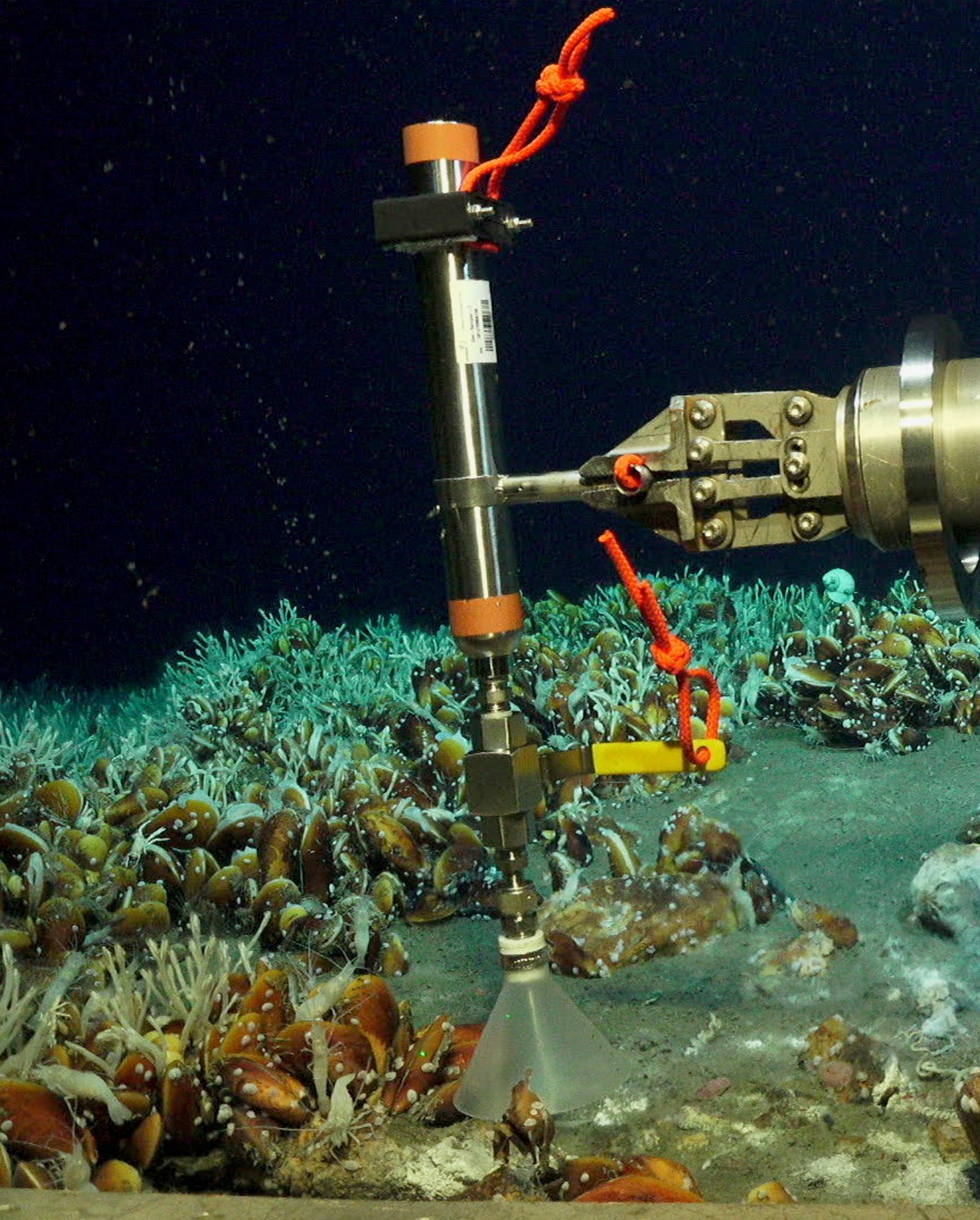
Output
EMB Future Science Brief No. 12 'Deep Sea Research and Management Needs' (April 2025)
News article on the launch of the Future Science Brief (April 2025)
The document was published on 11 April 2025 in a dedicated webinar. More information here.
Background
There are several definitions for where the deep sea begins, but for the purposes of this work, the deep sea will be defined as the water column and seabed below 200 m. This follows the definition by Gage & Tyler (1991) as was used in the previous EMB publication on this topic, the Position Paper 22 'Delving Deeper: Critical challenges for 21st century deep sea research' from September 2015, and its accompanying Policy Brief 2 'How can we achieve sustainable management of our deep sea through integrated research?' from November 2015.
The deep sea covers most of the habitable volume of the Ocean and is the home for a myriad of unique and endemic species, habitats and ecosystems such as hydrothermal vents and seamounts, many of which still need to be discovered and understood. Given the complexity and scale of the deep-sea environment, it appears from the literature that studies often focus on limited regions, parameters or species, and broader perspectives have not been published in the literature. In addition, there is limited published discussion on the wider needs for deep-sea technology, beyond a few proposals for specific technologies. This gap needs to be filled to help provide clarity on what technology and innovation is needed to support ongoing and future deep-sea research.
The European Marine Board considered timely to revisit this topic, to take stock of where we are, to highlight the progress that has already taken place, and to make recommendations to take deep-sea research forward. Discussions on the impact of climate change, industrial fisheries on the deep-sea ecosystem, on deep-sea mining and other impacts, microplastics included, are becoming more commonplace in scientific, economic, and political circles, and are reaching public conversations, partly thanks to significant science communication efforts in this area. There are also many stakeholders in the deep-sea field with varying agendas and perspectives, including from natural and social science governance, industry and NGO’s, each conducting their own discussions, research and data collection. For this reason, it would be of significant benefit for all stakeholders to develop a document that takes an overarching view, to outline what the current state-of-the-art is, and what the next steps need to be for sustainable development in terms of scientific research and governance of the deep sea.
Working Group Objectives
The aim of the working group will be to produce a Future Science Brief outlining the current policy- and research funding status and future recommendations in relation to the deep sea. This document should not focus on any specific sector or field, but take a holistic view of the deep sea, and highlight how the deep sea contributes to overall Ocean health, and what research is needed to ensure sustainable management of its resources.
The document will be primarily written from a European perspective, but due to the nature and location of the deep-sea (joining several overseas territories), as well as the global operation of European industry (e.g. mining and fishing), the document will have global relevance. It could also provide future direction for non-European states for their engagement with the deep sea. In addition, as there are many stakeholders involved in deep-sea topics, the working group has to be aware of current European and global activities, initiatives and conversations; to avoid duplication of efforts where possible.
Output
The final output of the Working Group will be an EMB Future Science Brief to be published in 2024.
Terms of Reference
The Terms of Reference describing the objectives and operation of the Working Group can be downloaded here.
Meetings
- 8-9 February 2023 (kick-off meeting, Ostend, Belgium)
- 27 February 2023 (online meeting)
- 17 May 2023 (online meeting)
- 21 June 2023 (online meeting)
- 5 September 2023 (online meeting)
- 18-19 April 2024 (Brussels, Belgium)
Working Group Members
Chair: Sylvia Sander, Helmholtz-Zentrum für Ozeanforschung Kiel (GEOMAR), Germany
Co-chair: Christian Tamburini, Institut Méditerranéen d'Océanologie (MIO), France
Working Group members:
- Roberto Danovaro, Università Politecnica delle Marche, Italy
- Sabine Gollner, Koninklijk Nederlands Instituut voor Onderzoek der Zee (NIOZ), The Netherlands
- Bleuenn Guilloux, La Rochelle Université, France
- Henk-Jan Hoving, Helmholtz-Zentrum für Ozeanforschung Kiel (GEOMAR), Germany
- Igor Isajlović, Institut za oceanografiju i ribarstvo (IOF), Croatia
- Bhavani Narayanaswamy, Marine Alliance for Science and Technology Scotland (MASTS), UK
- Ellen Pape, Universiteit Gent, Belgium
- Marzia Rovere, Istituto di Scienze Marine del Consiglio Nazionale delle Ricerche (CNR-ISMAR), Italy
- Miguel Semedo, Centro Interdisciplinar de Investigação Marinha e Ambiental (CIIMAR), Portugal
- Pedro Vélez Belchí, Instituto Español de Oceanografía (IEO), Spain
- Riwan Leroux, Institut Français de Recherche pour l'Exploitation de la Mer (IFREMER), France & EMB Young Ambassador
EMBCP support – Maike Nicolai (GEOMAR)
Observer: Sarah de Rijcke & Renate Reitsma, Fluid Knowledge, Leiden University
Contact at European Marine Board Secretariat: Ángel Muñiz Piniella Email
Image credit: GEOMAR